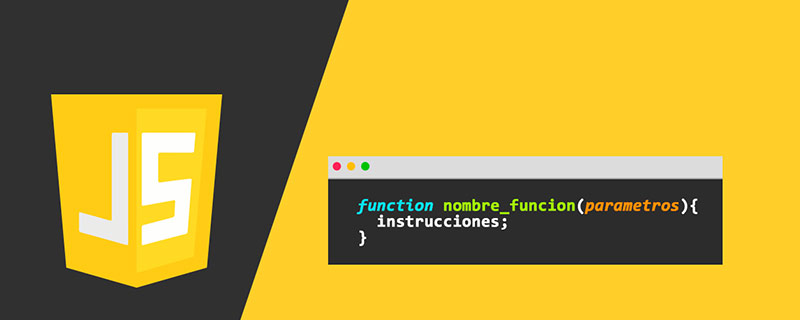Introduction and information
Through the official API of Node.js, you can see that Node.js itself provides many core modules http://nodejs.org/api/. These core modules are compiled into binary files and can require('module name') Get it; the core module has the highest loading priority (this will be reflected when there is a module with the same name as the core module)
(This time I am mainly talking about custom modules)
Node.js also has a type of module called a file module, which can be a JavaScript code file (.js as the file suffix), a JSON format text file (.json as the file suffix), or an edited C/ C file (.node as file suffix);
The file module access method is through require('/filename.suffix') require('./filename.suffix') requrie('../filename.suffix') to access, the file suffix can be omitted; with Starting with "/" means loading with an absolute path, starting with "./" and starting with "../" means loading with a relative path, and starting with "./" means loading files in the same directory,
As mentioned earlier, the file suffix can be omitted. Nodejs tries to load the priority js file > json file > node file
Create a custom module
Take a counter as an example

var outputVal = 0; //Output value
var increment = 1; //Increment
/* Set the output value*/
function seOutputVal (val) {
outputVal = val;
}
/* Set the increment*/
function setIncrement(incrementVal){
increment = incrementVal;
}
/* output*/
function printNextCount()
{
outputVal = increment;
console. log(outputVal) ;
}
function printOutputVal() {
console.log(outputVal);
}
exports.seOutputVal = seOutputVal;
exports.setIncrement = setIncrement;
module.exports.printNextCount = printNextCount;
Custom module example source code
The focus of the example is on exports and module.exports; it provides an interface for external access. Let’s call it below to see the effect
Call custom module

/*
A Node.js file is a Module, this file may be Javascript code, JSON, or a compiled C/C extension.
Two important objects:
require is to obtain the module from the outside
exports is to expose the module interface
*/
var counter = require('./1_modules_custom_counter');
console.log('First call to module [1_modules_custom_counter]');
counter.seOutputVal(10); //Set counting starting from 10
counter.setIncrement (10);
counter.printNextCount();
counter.printNextCount();
counter.printNextCount();
counter.printNextCount();
/*
require calling the same module multiple times Will not load repeatedly
*/
var counter = require('./1_modules_custom_counter');
console.log('Second call to module [1_modules_custom_counter]');
counter.printNextCount( );
Custom mode calling source code
When running, you can find that all methods exposed through exports and module.exports can be accessed!
As you can see in the example, I obtained the module through require('./1_modules_custom_counter') twice, but the printNextCount() method did start from 60 after the second reference~~~
The reason is that if node.js calls the same module multiple times through requirerequire, it will not be loaded repeatedly. Node.js will cache all loaded file modules based on the file name, so it will not be reloaded
Note: Caching by file name refers to the actual file name, and it will not be considered a different file just because the incoming path form is different.
There is a printOutputVal() method in the 1_modules_custom_counter file I created, which does not provide external public access methods through exports or module.exports,
What will happen if the 1_modules_load file is directly accessed and run?
The answer is: TypeError: Object #
The difference between exports and module.exports
After the above example, it can be accessed through exports and module.exports public methods! So since both can achieve the effect, there must be some differences~~~ Let’s take an example!

var counter = 0;
exports.printNextCount = function (){
counter = 2;
console.log(counter);
}
var isEq = (exports === module.exports);
console.log(isEq) ;
2_modules_diff_exports.js file source code
Let’s create a new 2_modules_diff_exports_load.js file and call it

var Counter = require('./2_modules_diff_exports');
Counter.printNextCount();
After calling, the execution result is as shown above
I output the value of isEq in the 2_modules_diff_exports_load.js file ( var isEq = (exports === module.exports); ), and the returned true
PS: Note that there are three equal signs. If you are not sure, please check the information yourself!
Don’t rush to conclusions, change these two JS files into the corresponding codes of module.exports
//The modified 2_modules_diff_exports.js source code is as follows
var counter = 0;
module.exports = function(){
counter = 10;
this.printNextCount = function()
{
console.log(counter);
}
}
var isEq = (exports === module.exports);
console.log(isEq);
//The modified source code of 2_modules_diff_exports_load.js file is as follows
var Counter = require('./2_modules_diff_exports');
var counterObj = new Counter();
counterObj.printNextCount();

After calling, the execution result is as shown above
I output the value of isEq in the 2_modules_diff_exports_load.js file ( var isEq = (exports === module.exports); ), and returned false, which is inconsistent with the results obtained previously!
PS: Do not use Counter.printNextCount(); to access, you will only get an error message
API provides explanation
http://nodejs.org/api/modules.html
Note that exports is a reference to module.exports making it suitable for augmentation only. If you are exporting a single item such as a constructor you will want to use module.exports directly instead
exports is just module.exports an address reference. Nodejs will only export the point of module.exports. If the exports pointer changes, it means that exports no longer points to module.exports, so it will no longer be exported
Refer to other understandings:
http://www.hacksparrow.com/node-js-exports-vs-module-exports.html
http://zihua.li/2012/03/use-module-exports-or-exports-in-node/
module.exports is the real interface, and exports is just an auxiliary tool for it. What is ultimately returned to the call is module.exports instead of exports.
All attributes and methods collected by exports are assigned to Module.exports. Of course, there is a premise for this, that is, module.exports itself does not have any properties and methods.
If module.exports already has some properties and methods, then the information collected by exports will be ignored.
exports and module.exports cover
The above also basically understands the relationship and difference between exports and module.exports, but what is the result if exports and module.exports exist for the printNextCount() method at the same time?

Call result

It can be seen from the results that no error is reported, indicating that it can be defined in this way, but in the end module.exports overrides exports
Although the result will not report an error, there will inevitably be some problems during development if used in this way, so
1. It is best not to define module.exports and exports separately
2. NodeJs developers recommend using module.exports to export objects and exports
to export multiple methods and variables.Others...
There are other methods provided in the API, so I won’t go into details. Based on the above example, you will know it by yourself as soon as you output it
module.id
Returns the module identifier of string type, usually the fully parsed file name
module.filename
Returns a fully parsed file name of string type
Module.loaded
Returns a bool type indicating whether loading is complete
module.parent
Returns the module that references this module
module.children
Returns an array of all module objects referenced by this module
 Vercel是什么?怎么部署Node服务?May 07, 2022 pm 09:34 PM
Vercel是什么?怎么部署Node服务?May 07, 2022 pm 09:34 PMVercel是什么?本篇文章带大家了解一下Vercel,并介绍一下在Vercel中部署 Node 服务的方法,希望对大家有所帮助!
 node.js gm是什么Jul 12, 2022 pm 06:28 PM
node.js gm是什么Jul 12, 2022 pm 06:28 PMgm是基于node.js的图片处理插件,它封装了图片处理工具GraphicsMagick(GM)和ImageMagick(IM),可使用spawn的方式调用。gm插件不是node默认安装的,需执行“npm install gm -S”进行安装才可使用。
 一文解析package.json和package-lock.jsonSep 01, 2022 pm 08:02 PM
一文解析package.json和package-lock.jsonSep 01, 2022 pm 08:02 PM本篇文章带大家详解package.json和package-lock.json文件,希望对大家有所帮助!
 怎么使用pkg将Node.js项目打包为可执行文件?Jul 26, 2022 pm 07:33 PM
怎么使用pkg将Node.js项目打包为可执行文件?Jul 26, 2022 pm 07:33 PM如何用pkg打包nodejs可执行文件?下面本篇文章给大家介绍一下使用pkg将Node.js项目打包为可执行文件的方法,希望对大家有所帮助!
 分享一个Nodejs web框架:FastifyAug 04, 2022 pm 09:23 PM
分享一个Nodejs web框架:FastifyAug 04, 2022 pm 09:23 PM本篇文章给大家分享一个Nodejs web框架:Fastify,简单介绍一下Fastify支持的特性、Fastify支持的插件以及Fastify的使用方法,希望对大家有所帮助!
 node爬取数据实例:聊聊怎么抓取小说章节May 02, 2022 am 10:00 AM
node爬取数据实例:聊聊怎么抓取小说章节May 02, 2022 am 10:00 AMnode怎么爬取数据?下面本篇文章给大家分享一个node爬虫实例,聊聊利用node抓取小说章节的方法,希望对大家有所帮助!
 手把手带你使用Node.js和adb开发一个手机备份小工具Apr 14, 2022 pm 09:06 PM
手把手带你使用Node.js和adb开发一个手机备份小工具Apr 14, 2022 pm 09:06 PM本篇文章给大家分享一个Node实战,介绍一下使用Node.js和adb怎么开发一个手机备份小工具,希望对大家有所帮助!
 图文详解node.js如何构建web服务器Aug 08, 2022 am 10:27 AM
图文详解node.js如何构建web服务器Aug 08, 2022 am 10:27 AM先介绍node.js的安装,再介绍使用node.js构建一个简单的web服务器,最后通过一个简单的示例,演示网页与服务器之间的数据交互的实现。


Hot AI Tools

Undresser.AI Undress
AI-powered app for creating realistic nude photos

AI Clothes Remover
Online AI tool for removing clothes from photos.

Undress AI Tool
Undress images for free

Clothoff.io
AI clothes remover

AI Hentai Generator
Generate AI Hentai for free.

Hot Article

Hot Tools

Dreamweaver Mac version
Visual web development tools

SublimeText3 Chinese version
Chinese version, very easy to use

SAP NetWeaver Server Adapter for Eclipse
Integrate Eclipse with SAP NetWeaver application server.

Safe Exam Browser
Safe Exam Browser is a secure browser environment for taking online exams securely. This software turns any computer into a secure workstation. It controls access to any utility and prevents students from using unauthorized resources.

VSCode Windows 64-bit Download
A free and powerful IDE editor launched by Microsoft






